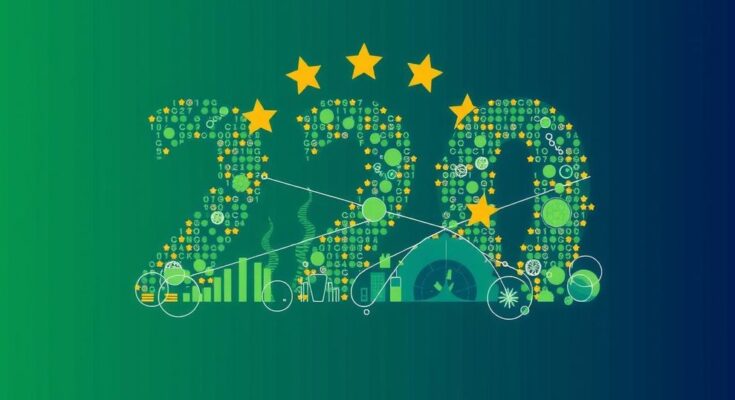The G20 summit emphasized integrating bioeconomy principles into sustainable development, focusing on nature-based solutions amid climate change concerns. Brazil proposed ten voluntary principles aimed at promoting sustainable practices, which includes participation from indigenous communities. The bioeconomy currently represents 25% of Brazil’s GDP, underlining its potential impact on global sustainability efforts.
At the recent G20 summit, member countries emphasized the importance of integrating bioeconomy principles into sustainable development frameworks. These discussions were notably highlighted during the G20 Bioeconomy Initiative, advocated by Brazil’s presidency. In light of growing climate change concerns—evidenced by extreme temperatures, wildfires, droughts, and floods—the G20 is focusing on nature-based solutions that require global cooperation. Bioeconomy refers to an economic model that harmonizes economic growth with environmental stewardship, centering on the use of renewable biological resources instead of fossil fuels. This concept promotes sustainable practices that benefit both the economy and the environment. For instance, everyday actions such as recycling, reusing materials, and opting for biodegradable products are personal contributions to this bioeconomic model. During the G20 meeting held in September in Rio de Janeiro, delegates presented the “Ten voluntary and non-binding High-Level Principles on Bioeconomy,” which, although not obligatory, aim to guide member nations towards shared sustainable practices. Key proposals include the involvement of indigenous populations in bioeconomic dialogues, the exchange of effective practices among countries, and the establishment of measurable methodologies to assess sustainability along value chains. Furthermore, the principles promote the restoration of impaired ecosystems. Currently, bioeconomy accounts for 25% of Brazil’s Gross Domestic Product, as reported by the Getulio Vargas Foundation (FGV). Brazil has also introduced a National Strategy for Bioeconomy to devise guidelines and an accompanying National Plan that focuses on bioindustrialization and related initiatives. The discourse at the G20 categorized bioeconomy discussions into three key areas: promoting science, technology, and innovation for bioeconomy; advancing the sustainable use of biodiversity; and the bioeconomy’s contributions to sustainable development. This multifaceted approach strives for a balance between development, sustainability, traditional knowledge, and global strategies in addressing climate change. Marina Silva, the Brazilian Minister of the Environment and Climate Change, underscored the necessity for a comprehensive approach to bioeconomy that encompasses various governmental sectors beyond just environmental ministries. She indicated that the absence of international standards impedes coordinated global efforts, which are vital for establishing a new development model rooted in ecological transition. Minister Silva asserted, “Actions promoting the Bioeconomy must also be carried out by governments, with cooperation and global parameters for a new development model.” This initiative marks a significant step towards aligning environmental sustainability with economic growth on a global scale, showcasing the critical role of collective action in addressing pressing ecological challenges.
The G20 summit, held in Rio de Janeiro, focused on the concept of bioeconomy—a framework that integrates economic development with sustainable practices aimed at protecting the environment. With increasing evidence of climate change impacting daily life, the G20 Bioeconomy Initiative seeks to establish collaborative efforts among member nations to develop strategies that are environmentally friendly while promoting economic growth. The discussions were underlined by Brazil’s leadership in proposing a structured approach to these pressing global issues, thereby ensuring that sustainability becomes central in economic discussions.
The G20’s commitment to bioeconomy principles indicates a significant shift towards fostering sustainable development globally. As nations adopt these non-binding principles, the integration of renewable biological resources into everyday economic practices presents an opportunity to mitigate the effects of climate change while promoting biodiversity. Future efforts must build upon this collaborative foundation to achieve a sustainable and resilient economic model. The recognition of bioeconomy as a pivotal aspect of both environmental health and economic prosperity is crucial for long-lasting change.
Original Source: www.g20.org




